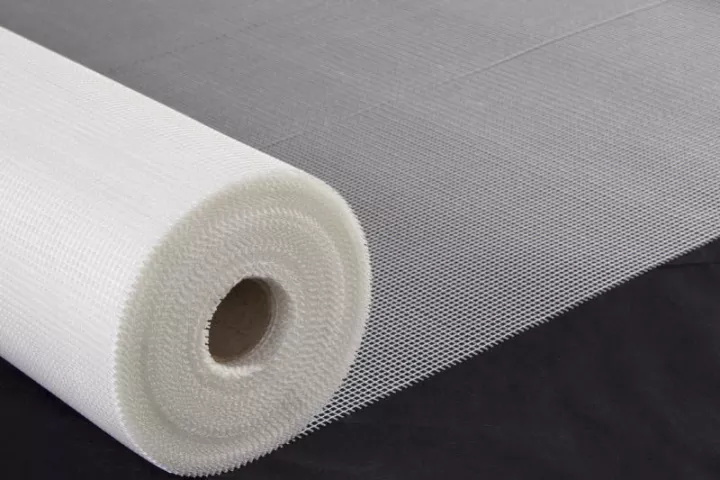
The general grid cloth uses platinum glass fiber as the [...]
The general grid cloth uses platinum glass fiber as the base material, and the mesh cloth of standard type and good quality. Regardless of the selection of raw materials and the process of production, they are more particular. The coating emulsion used must have good alkali resistance, excellent alkali resistance and high tensile strength in warp and weft. Only when these conditions are met can production Only the mesh cloth that comes out will have the characteristics of good hand feeling and good construction compliance, and can reduce the amount of plastering mortar to a large extent.
Glass fiber is usually made of waste glass such as beer bottles, and the market price of glass fiber mesh is usually around 1.00-1.60 yuan. The production process is clay crucible wire drawing, which is a production process prohibited by the state, and the surface coating is not alkali-resistant emulsion. But with the naked eye: the workmanship is relatively rough, the general market sells more rolls, the length is often missing, the weight is not enough, it will crack when folded twice, the joints are not strong and easy to shift, and it is easy to puncture the skin. If this kind of mesh cloth is used in the insulation layer, it will lose its strength after two months. If the mortar is knocked out and the glass fiber mesh cloth is taken out, the glass fiber yarn will become powder with a light grinding. Also called mixed silk yarn. This is a better imitation glass fiber, and there is another kind called imitation platinum fiberglass mesh. However, the selection of waste glass is usually some flat glass cullet with relatively good transparency, and the fiber diameter is relatively small. Sometimes it is difficult to judge its authenticity from its appearance, but its quality cannot meet the requirements of real alkali-resistant mesh cloth in external wall insulation. So when buying mesh cloth, you must choose it well.
Through the assessment, we can know that the external wall insulation systems used in my country's construction market mainly include the following types: polystyrene board thin plaster insulation system, rubber powder polystyrene particle insulation system, steel wire grid insulation system, polyurethane insulation system , Extruded polystyrene board insulation system. Although these kinds of external wall insulation systems have their own advantages and characteristics, they all have disadvantages of different degrees, mainly as follows.
1. Rubber powder polystyrene particles.
① The thickness of the insulation layer is uneven, which affects the insulation effect.
②The rubber powder has poor water resistance and weather resistance. When the rubber powder cement mortar is bonded to the polystyrene board, the initial bonding force is relatively large. With the passage of time, the adhesive strength of the rubber powder gradually dissipates and is not durable.
③ Two-component on-site batching construction, the operability is not good, and the thermal insulation coefficient is difficult to guarantee.
2. Thin plastering of polystyrene board.
①Limited by the strength of the EPS board, it will be damaged and cracked when it is not plastered.
② There is a cavity and it is easy to fall off.
③ It does not match the life of the building.
④ Heavy finishes are limited.
3. Steel wire mesh frame.
①It does not have good operability.
② The proportion of data components is not determined.
③ Durability is doubtful.
4. Polyurethane.
① The formula and ratio of thermal insulation boards are chaotic and unstable, resulting in poor physical stability of the boards and poor thermal insulation effects.
② The construction of spraying has not been solved, and it is difficult to guarantee the quality of the project.
5. Extruded polystyrene board.
①The XPS board is not firmly bonded to the plastering mortar, and it is easy to fall off.
②External tiles fall off faster and more seriously.
③The permeability is poor, and condensation is inevitable.


Please login to write a comment after